On March 14 last year, four days before the NATO intervention in Libya, there was a less publicised Western-supported military intervention. A Saudi-led force invaded Bahrain to put down democracy protests against that country’s absolute monarchy.
Despite the repression, fresh protests have broken out. Press TV said on March 27 that thousands of Bahrainis rallied calling for the overthrow of King Hamad bin Isa and his Al Khalifa dynasty.
-
-
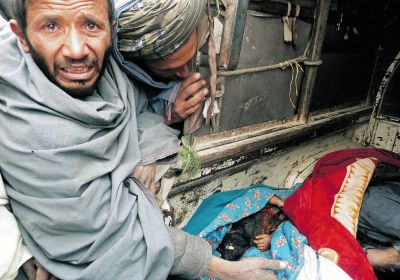 For the US military and the pro-war Western corporate media, the March 11 slaughter of 16 civilians, nine of them children, as they slept in their homes in the villages of Alkozai and Najeeban in Panjwai district, Kandahar province, was an aberration. For Afghans, it was just the latest massacre. There are differing accounts of what happened. The US maintains the killings were the work of a single “rogue” soldier. Eyewitnesses, however, insist there was more than one attacker.
For the US military and the pro-war Western corporate media, the March 11 slaughter of 16 civilians, nine of them children, as they slept in their homes in the villages of Alkozai and Najeeban in Panjwai district, Kandahar province, was an aberration. For Afghans, it was just the latest massacre. There are differing accounts of what happened. The US maintains the killings were the work of a single “rogue” soldier. Eyewitnesses, however, insist there was more than one attacker. -

Ugandan newspaper the Observer reported on March 2 serious allegations against Ugandan troops in the Central African Republic (CAR), where they have been present since 2007, chasing the remnants of the Ugandan militia, the Lord’s Resistance Army (LRA).
-
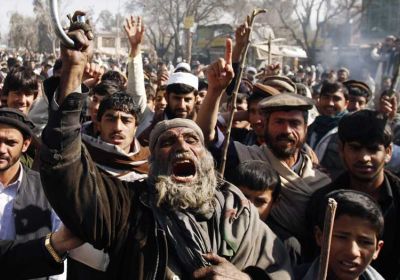 There has been a surge in protests and attacks against the US-led occupation forces in Afghanistan since February 20. The catalyst was the discovery by Afghan workers of burnt copies of the Koran at the waste disposal facility of the US military-run Bagram prison. More than 30 unarmed protesters have been shot by occupation and puppet forces since February 20 (or, as the Western media prefer to phrase it, “died in the riots”). Six occupation soldiers have been killed in attacks ― not by insurgents but by members of the Afghan security forces.
There has been a surge in protests and attacks against the US-led occupation forces in Afghanistan since February 20. The catalyst was the discovery by Afghan workers of burnt copies of the Koran at the waste disposal facility of the US military-run Bagram prison. More than 30 unarmed protesters have been shot by occupation and puppet forces since February 20 (or, as the Western media prefer to phrase it, “died in the riots”). Six occupation soldiers have been killed in attacks ― not by insurgents but by members of the Afghan security forces. -
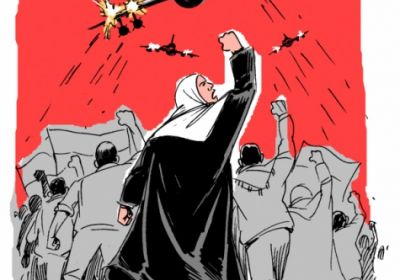 The US response to the uprisings in the Arab world remains deeply hypocritical. “It is time to stop the killing of Syrian citizens by their own government,” US President Barack Obama said at a February 24 meeting in Tunis of the representatives of 60 countries, led by the Western powers and their Arab allies. The group cynically called itself the “Friends of Syria”. Secretary of State Hillary Clinton took the opportunity to lash out at the US’s main global competitors, Russia and China.
The US response to the uprisings in the Arab world remains deeply hypocritical. “It is time to stop the killing of Syrian citizens by their own government,” US President Barack Obama said at a February 24 meeting in Tunis of the representatives of 60 countries, led by the Western powers and their Arab allies. The group cynically called itself the “Friends of Syria”. Secretary of State Hillary Clinton took the opportunity to lash out at the US’s main global competitors, Russia and China. -
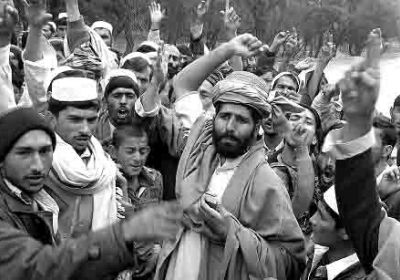 The US-led international occupation force in Afghanistan (ISAF) is in the country to fight the Taliban as the ally of the Afghan state headed by President Hamid Karzai. The ISAF’s primary mission is training and mentoring the Afghan government forces so they can take over the fight, allowing the foreign forces to leave. That is the official story. But casualties suffered by ISAF soldiers are increasingly being inflicted not by the Taliban but by the soldiers they are meant to be mentoring.
The US-led international occupation force in Afghanistan (ISAF) is in the country to fight the Taliban as the ally of the Afghan state headed by President Hamid Karzai. The ISAF’s primary mission is training and mentoring the Afghan government forces so they can take over the fight, allowing the foreign forces to leave. That is the official story. But casualties suffered by ISAF soldiers are increasingly being inflicted not by the Taliban but by the soldiers they are meant to be mentoring. -
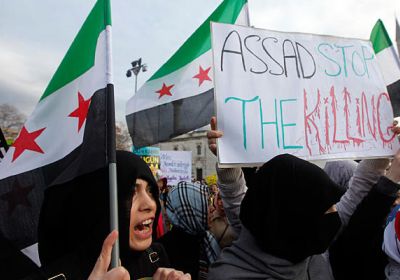
The United Nations estimated early last month that more than 5400 people had been killed since protests against the dictatorship of Syrian President Bashar al-Assad began in March last year.
-
When US forces crossed into Pakistan from Afghanistan and killed 24 Pakistani border guards on November 26, it further strained Pakistan-US relations, already complicated by the fact the Pakistani elite, in particular the military, maintains close links to both the US and the Taliban. This collaboration with both sides of the Afghan war has continued despite the November 26 incident being far from unique. Both the Taliban and the US-led forces routinely kill Pakistani civilians, as well as soldiers and police.
-
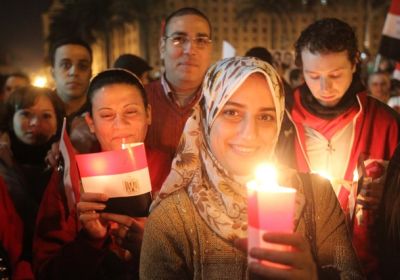 A year ago, uprisings in Tunisia and Egypt began the wave of popular mobilisations across the Arab world that has become known in the West as the “Arab Spring”. A desperate individual protest in a provincial Tunisian town ― the self-immolation of fruit vendor Mohamed Bouazizi to protest police harassment and lack of economic opportunity ― triggered a region-wide revolt against economic and political injustice.
A year ago, uprisings in Tunisia and Egypt began the wave of popular mobilisations across the Arab world that has become known in the West as the “Arab Spring”. A desperate individual protest in a provincial Tunisian town ― the self-immolation of fruit vendor Mohamed Bouazizi to protest police harassment and lack of economic opportunity ― triggered a region-wide revolt against economic and political injustice. -
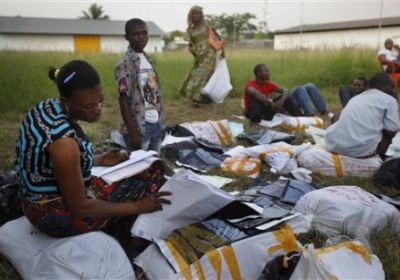
“Preliminary results from Congo’s presidential election show incumbent Joseph Kabila leading,” Associated Press reported on December 3. For several reasons, this is not surprising news from the Democratic Republic of the Congo (DRC).
-
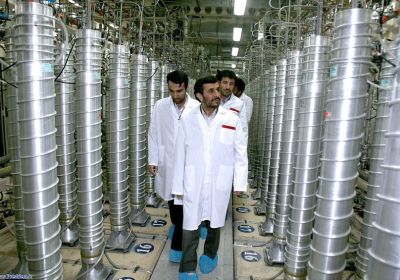 A November 8 report by the International Atomic Energy Agency (IAEA), the United Nations’ nuclear regulatory authority, has been used by the United States and other Western powers as a pretext for a new round of economic sanctions against Iran and the ramping up of belligerent rhetoric. “The phraseology is ponderous but the message is clear,” BBC diplomatic and defence correspondent Jonathan Marcus explained on November 8. “Iran, the IAEA believes, may well have been working on research for a nuclear bomb to arm one of its long-range missiles.”
A November 8 report by the International Atomic Energy Agency (IAEA), the United Nations’ nuclear regulatory authority, has been used by the United States and other Western powers as a pretext for a new round of economic sanctions against Iran and the ramping up of belligerent rhetoric. “The phraseology is ponderous but the message is clear,” BBC diplomatic and defence correspondent Jonathan Marcus explained on November 8. “Iran, the IAEA believes, may well have been working on research for a nuclear bomb to arm one of its long-range missiles.” -
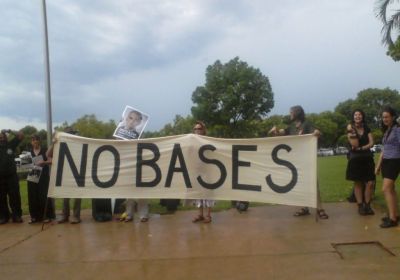 The increased US military presence in Australia, announced by PM Julia Gillard and US President Barack Obama during Obama’s November 16-17 visit, is a setback for peace. Australia should be closing existing US military bases in Australia and put an end to existing joint military exercises with US forces. Australia should stop taking part in US-led military aggression. In particular, it should withdraw Australian soldiers from Afghanistan and Iraq.
The increased US military presence in Australia, announced by PM Julia Gillard and US President Barack Obama during Obama’s November 16-17 visit, is a setback for peace. Australia should be closing existing US military bases in Australia and put an end to existing joint military exercises with US forces. Australia should stop taking part in US-led military aggression. In particular, it should withdraw Australian soldiers from Afghanistan and Iraq.